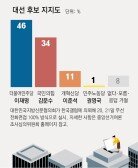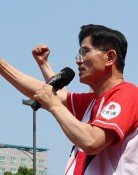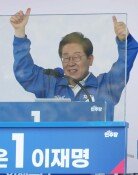President Orders Establishment of Investigation Body for High-level Corruption
President Orders Establishment of Investigation Body for High-level Corruption
Posted May. 25, 2004 21:24,
It has been focused on that the main body and types of inspection against high-level officials will face a fundamental alteration because President Roh Moo-hyun has ordered the establishment of an Inspection Body for high-level Governmental official Corruption (IBGC), under the management of the Corruption Prevention Committee (CPC), which is under direct presidential control.
In order to disperse the corpulent authority of the prosecution and to carry out independent and systemic inspections over the governmental official layer, it is needed, welcomed some people. But, because of the strong opposition from the prosecution and relevant problems as to inspection supervisory rights occurred from granting special prosecution rights to the newly established agency, lots of pending problems, such as the revision of penal and litigation laws, are still waiting to be sorted out.
--Background and details
As to the types and authorities of IBGC, nothing has been settled clearly except the firm intention of President Roh. The Presidents conception is regarded as one that sets up such a inspection body not under the control of prosecution but the CPC.
There is a high possibility that IBGC will become a special investigation body that monitors the corruption of high-level governmental officials, their spouses, and family members under regular surveillance. It is highly expected that the target of IBGC will consisted of the president, prime minister, ministers, deputies, assemblymen and women, chiefs of the authority agencies such as the Board of Audit and Inspection, National Intelligence Services, and Headquarters of Police, prosecutors and judges, military generals, and mayors and provincial governors.
Establishment of IBGC has been the public pledge of President Roh in his presidential campaign, and of the leading Open Uri Party and the biggest opposition party, the Grand National Party in the latest 17th National Parliamentary Election. The intention of setting up such a special inspection body out of the control of the prosecution can be considered as rooted in a deep disbelief toward the prosecutions practice of investigation. Another intention to check the excessively inflated authority of prosecuting bodies can be also realized.
--The major problem is whether or not to grant the right of indictment
The existing law has adopted the prosecutors exclusive possession of indictment rights like Clause 246 of penal and litigation law.
If the IBGC should possess the right of indictment, the status of the prosecution will be greatly weakened because the principle of its indictment exclusiveness will waver. In addition, the function of special investigation, which can be called the flower of prosecution investigation, will be reduced in a large scale and may leave the existence of the central investigation body of the Supreme Prosecution and the special department of the Seoul District of Prosecution as titular.
On the other hand, if the IBGC were not to receive any indictment-related rights, it will be dropped back as an additional Special investigation body, equipped only with a preliminary investigation right, like a municipal office taking charge of sanitation-checking work.
--Refutation of prosecution
Undergoing the investigation into presidential funds, the prosecution is currently recovering its political neutrality and the peoples confidence. But the establishment of a new investigation body will spoil it and surely become a useless effort, remarked a source from the Supreme Prosecution. Some prosecutors criticized this, asking: Is the prosecution really a discreditable agenc
jin0619@donga.com







